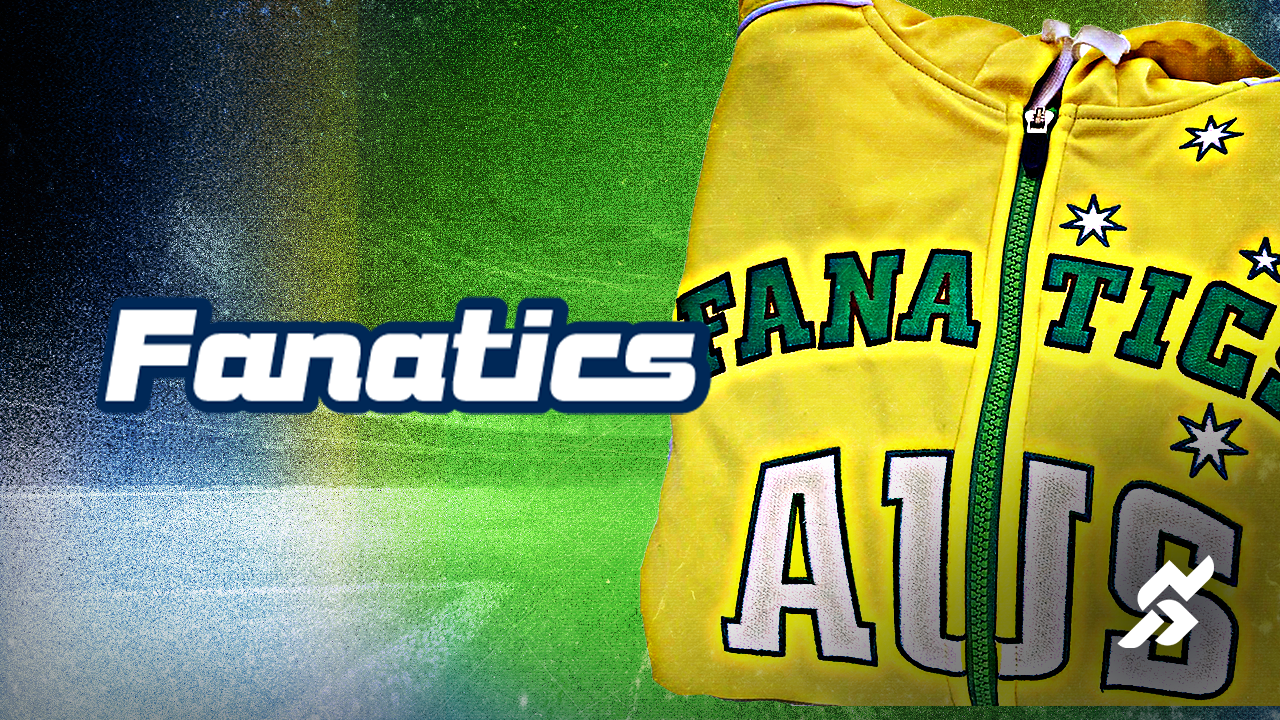
A long trademark dispute between Fanatics and an Australian firm is winding down, but not without a crescendo in a bitter battle of words.
FanFirm—an Australian company that sells caps, jerseys, scarves and other sports fan merch under the Fanatics name down under—won a judgment recently in Australia federal court prohibiting Fanatics LLC, the large U.S.-based business, from using the word Fanatics in its marketing in the country. FanFirm has been using the word Fanatics since 1997, originally for sports tourism, and proved to the court that as of 2010, it had established use of the word Fanatics printed on sports fan gear.
According to court documents, FanFirm claimed that while Fanatics had long sold gear in Australia, it hadn’t done so in sufficient volume until 2020 and shouldn’t be allowed to use the word on merchandise or in marketing to Australian consumers. After years of hearings and appeals, the courts largely agreed.
“We are obviously happy with the result, and we have enjoyed rubbing Fanatics LLC’s nose in it a bit,” Warren Livingstone, FanFirm’s owner, said in an email. “We love American sports in Australia, but we have also been fighting for 15 years in trademark courts and 3.5 years in the federal court at significant cost.”
The court battles aren’t quite over. Judgments still need to be made on how much of FanFirm’s AUS$2.5 million in legal costs Fanatics will need to pay, Livingstone said. Fanatics also can make one final appeal to Australia’s High Court, but that faces a high hurdle, the FanFirm executive said, because the court requires evidence of legal error by earlier judges.
While the final judgment against Fanatics got a lot of press earlier this month, making it appear the company’s Australian business would be hobbled, Fanatics says that isn’t the case.
“This ruling will have a very minor effect on our business and our ability to serve our partners in Australia,” Fanatics spokesperson Brandon Williams said in an email. “Australia is one of our fastest growing markets, and we’re happy that the court’s ruling in this matter allows us to continue operating all partner websites as ‘A Fanatics Experience’ and hasn’t precluded us from signing many new incredible partnership deals. This ruling also allows Fanatics to continue to offer merchandise from third-party licensed brands as well as all products we manufacture under a variety of other brands. Products with the wordmark ‘Fanatics’ make up less than 1% of our sales into Australia.”
Fanatics generated revenue of $8.1 billion across all its global business lines last year, and Williams declined to say how much revenue Australian sales are. One estimate is that Fanatics has about $29 million in combined web and in-store sales in the country. FanFirm’s annual sales aren’t publicly disclosed either, but they are estimated to be $7-$10 million.
Livingstone, however, believes the court decision is more damaging for Fanatics. “It’s a significant loss for Fanatics, because no NHL jerseys at the moment can sell into Australia, and any future deals that they may do with the NFL or whatever could never be sold into Australia. So all of a sudden, that limits their ability to sell these apparel deals,” Livingstone said on a phone call from Sydney. “If it’s less than 1% [of Fanatics sales], would they really be spending $5 million on their legal fees to fight? They have to pretend it’s a small fry because they’ve got a lot of investors, and this doesn’t look great.”
Livingstone used the NHL as an example, because Fanatics makes the league’s official jerseys. The executive also suggested in email that legal action could be taken to prevent NHL players from wearing Fanatics jerseys in a proposed game in Australia for next year’s Global Series, since the stylized Fanatics word is stitched inside the garment (the exterior displays just the Fanatics flag logo, which is not at issue in this case).
For its part, Fanatics is undeterred. “Australia is one of Fanatics’ fastest-growing markets outside of the U.S. in recent years, and we plan to invest in the region,” Williams said in his email.
This isn’t the first David versus Goliath story in sports trademarks. In the 1983 Irish courts found O’Neills, a maker of Gaelic sports gear and fan wear, had long established the right to use the three-stripe design claimed by Adidas, allowing the Dublin firm to sell three-stripe clothing in Ireland (subsequently, O’Neills is also able to sell three-stripe gear outside the country, based on items available on its U.S. and U.K. websites.
The result for Fanatics may be at worst an inconvenience for its supply chain, having to replace or eliminate their name logo on products sold in Australia that carry the Fanatics brand elsewhere. The simple solution would be a licensing deal with FanFirm to use the wordmark.
“We may consider licensing them in Australia, we may not,” Livingstone said in email. “I know how these things work.”
But that may not come to pass, he added on the phone. “It’s become quite personal. … It’s difficult to see an amicable end.”

